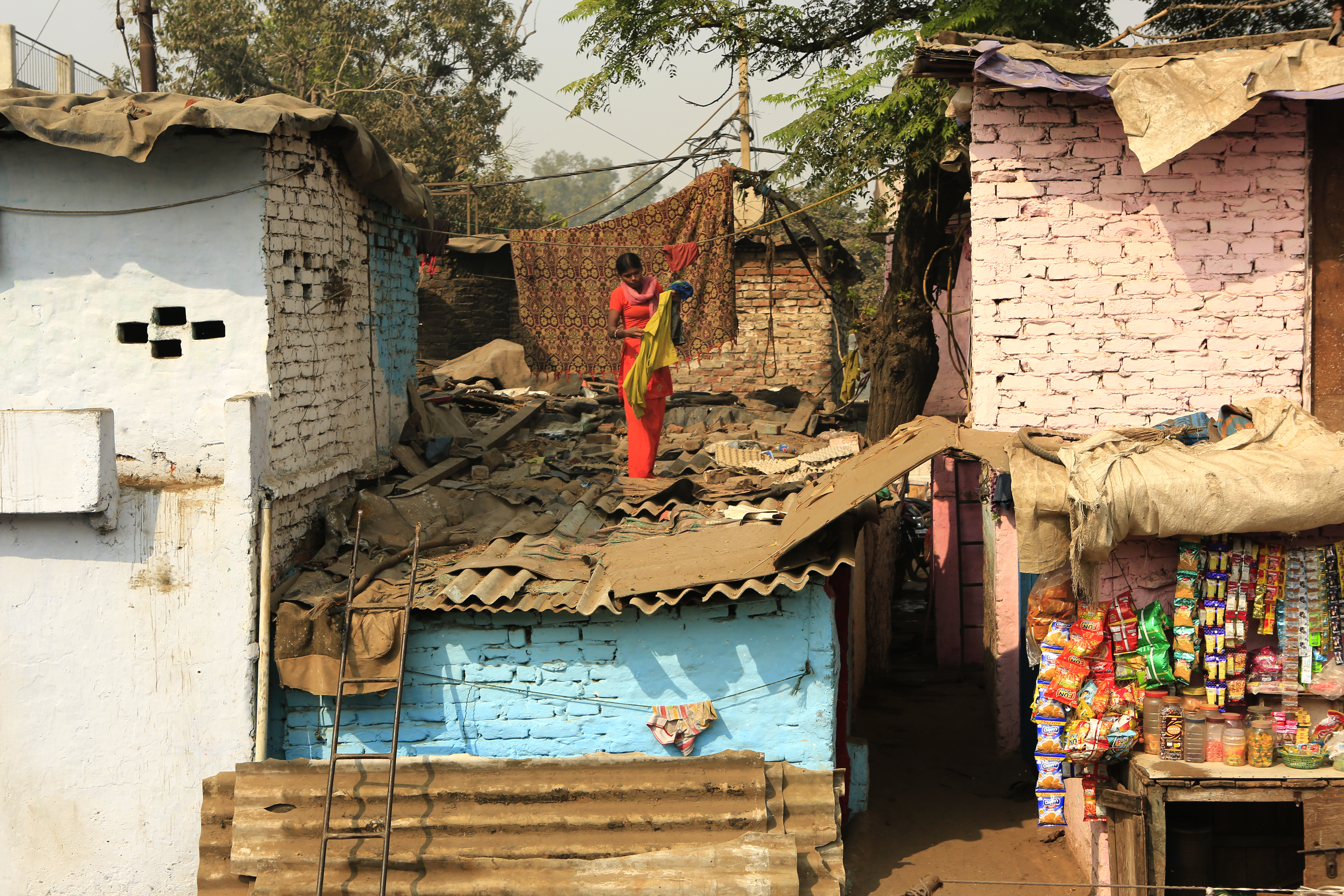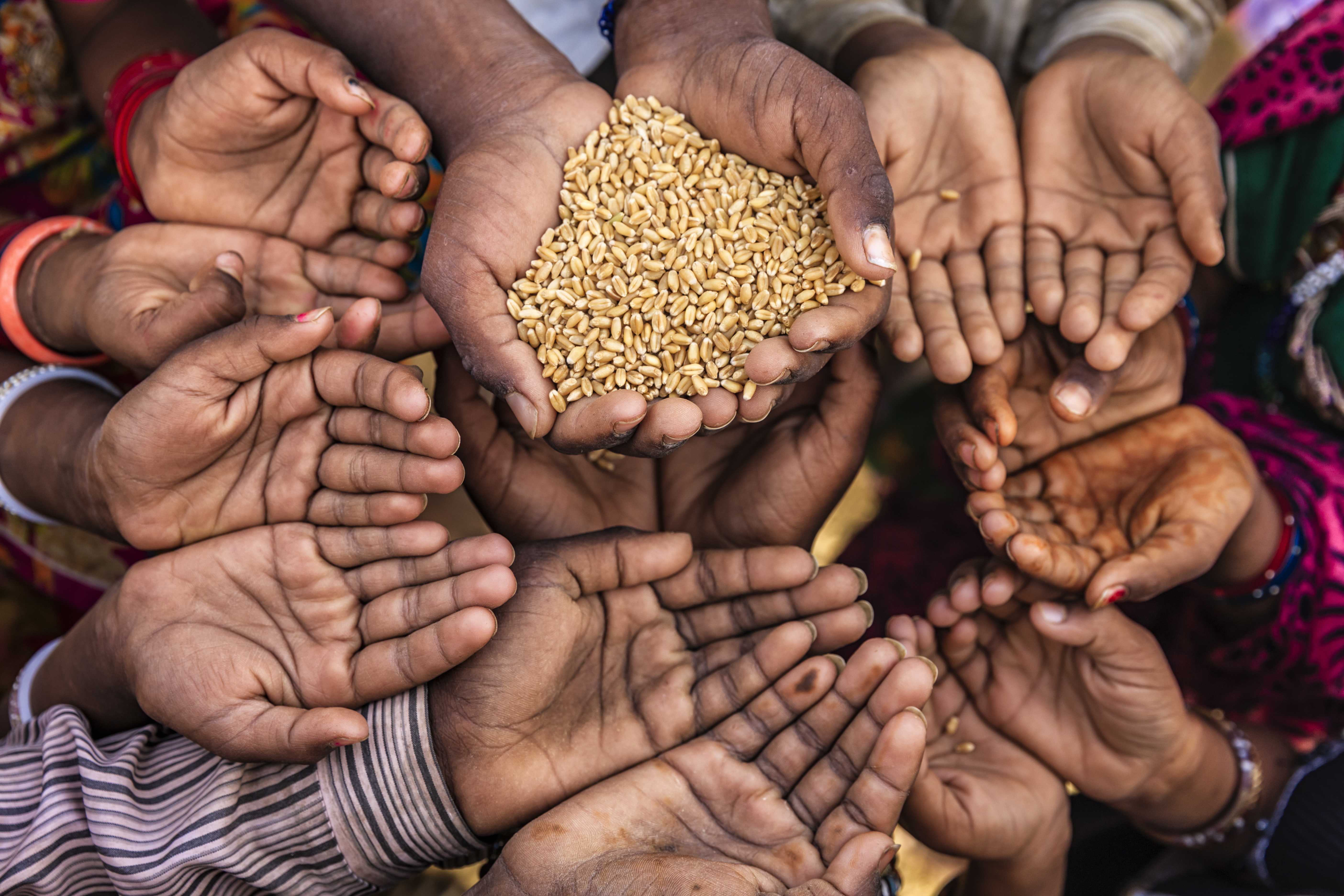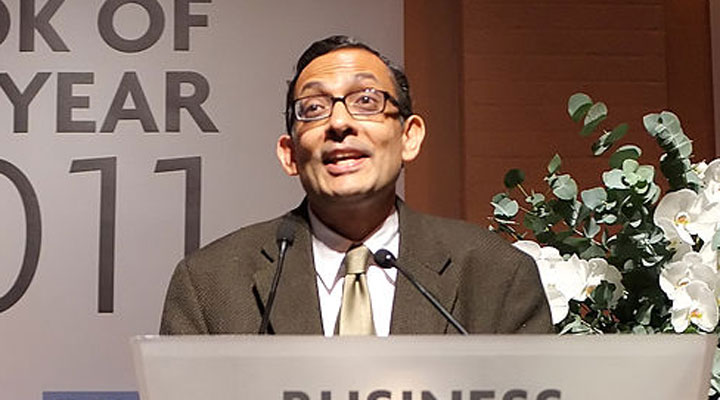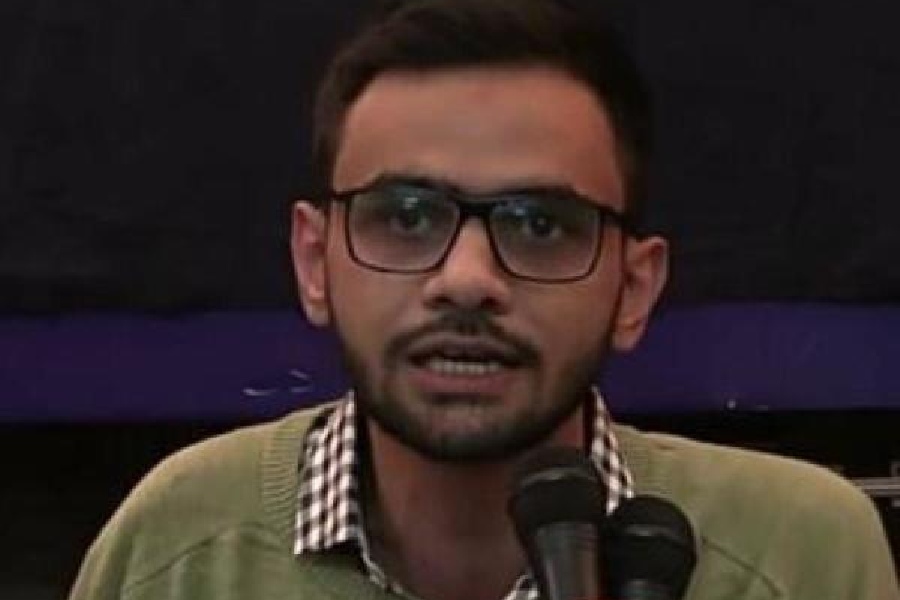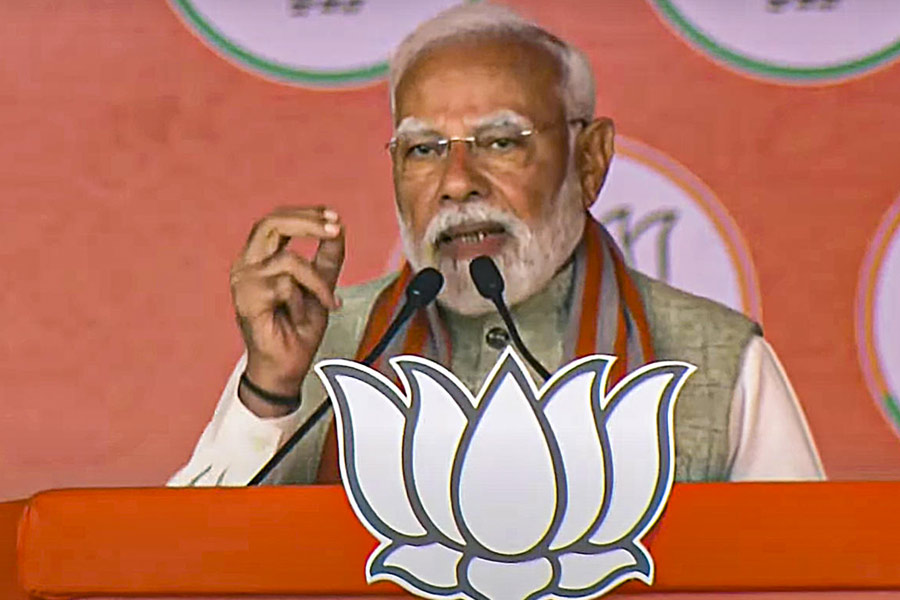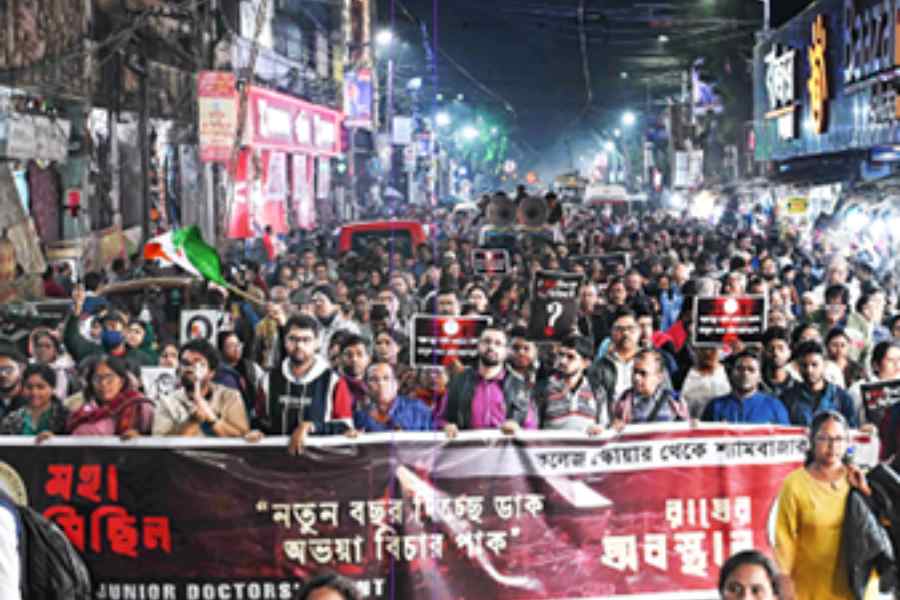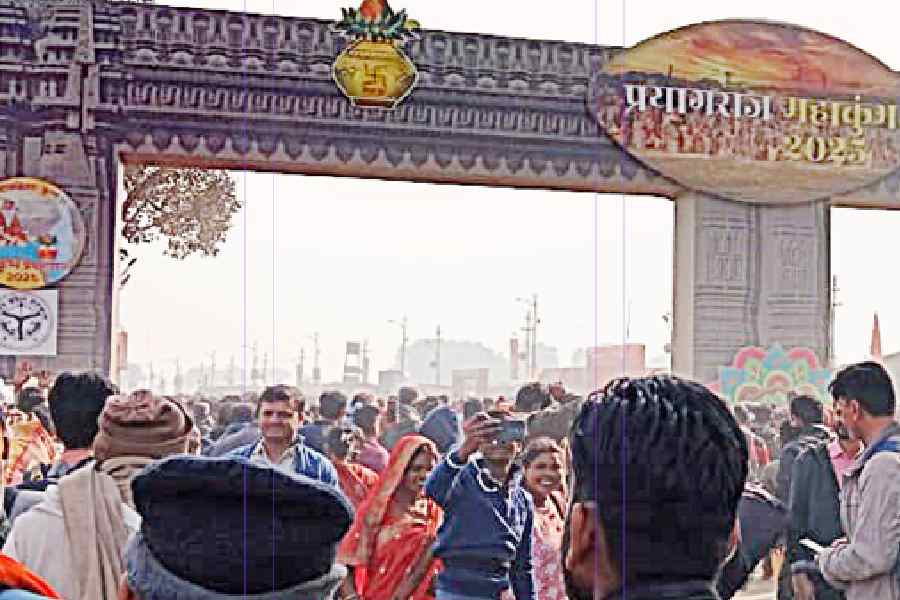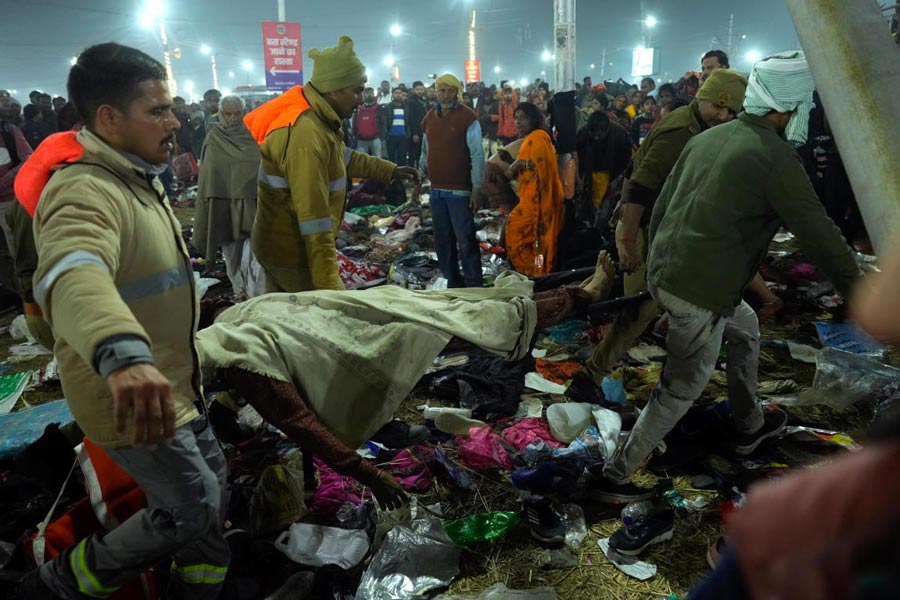Abhijit once asked migrant respondents in Delhi slums what they liked about living in the city. They liked many things; there were more options to give their children a good education, health care was better, finding a job was easier. The one thing they did not like was the environment. This is no surprise. Delhi has some of the vilest air in the world. When asked about which problems in their living environment they wanted fixed first, 69 percent mentioned drains and sewers, and 54 percent complained about garbage removal. The combination of choked drains, absent sewers, and piled-up garbage are often what gives the slums in India (and elsewhere) their distinctive odor, somewhere between acrid and putrescent.
For obvious reasons, many slum dwellers hesitate to bring their families with them. Instead, when it all becomes unbearable, as it must fairly quickly, they go home. In rural Rajasthan, the typical villager who migrates from the village to earn money comes back once a month. Only one out of ten migration episodes lasts more than three months. This means migrants tend to stay close to their home village, which probably limits the kinds of jobs they can get and the kinds of skills they acquire.
But why do they need to live in slums, or worse? Why don’t they rent themselves something a bit better? Often, even if they can afford it, the option doesn’t exist. In many developing countries, there are often several missing rungs in the quality ladder of housing. The next thing to a slum might be the nice little flat entirely out of reach.
There is a reason for this. Most third-world cities lack the infrastructure they need to serve their population. According to a recent report, India alone needs 4.5 trillion US dollars in infrastructure investment between 2016 and 2040, while Kenya needs 223 billion and Mexico 1.1 trillion. This means the relatively small parts of most cities with decent-quality infrastructure are always hugely in demand and have astronomically high land prices. Some of the most expensive real estate in the world, for example, is in India. Starved of investment, the rest of the city develops in haphazard ways, with the poor often squatting on whatever land happens to be unoccupied, whether or not it has sewer connections or water pipes. Desperate for a place to live but worried they can be evicted any day because it’s not their land, they build makeshift housing that sticks out like scars on the urban landscape. These are the famous third-world slums.
Making matters worse, as Ed Glaeser has argued in his wonderful book Triumph of the City, are city planners who resist building dense neighborhoods of high-rises for the middle class, aiming instead for a “garden city.” India, for example, imposes draconian limits on how high buildings can be, much stricter than what is found in Paris, New York, or Singapore. These restrictions result in massive urban sprawl and long commutes in most Indian cities. The same problem also shows up in China and many other countries, albeit in a less extreme form.
For the would-be low-income migrant, this set of bad policy choices creates an unenviable trade-off. He can crowd into a slum (if he is lucky), commute many hours a day, or resign himself to the daily misery of sleeping under a bridge, on the floor of the building where he works, in his rickshaw or under his truck, or on the pavement, protected perhaps by the awning of a shop. If that is not discouraging enough, for reasons already discussed, low-skilled immigrants know that, at least to start out, the jobs they can get are the jobs nobody else wants. If you happen to be dropped somewhere without a choice you may take them on, but it is hard to get excited about abandoning friends and family and going to the end of the world to sleep under a bridge, clean floors, or bus tables. It is only the migrants with the ability to think past the immediate obstacles and pain, and contemplate a steady climb from busboy to restaurant chain owner, who typically take it on.
The attraction of home goes beyond creature comforts. Poor people often live very vulnerable lives. Their incomes tend to be volatile and their health precarious, making it very useful to be able to call on others for help when needed. The more connected you are, the less exposed you will be if something bad happens. You might have a network where you are going, but your network is probably deeper and stronger where you grew up. You (and your family) may lose access to that network if you leave. As a result, only the most desperate or the very well off who can afford the risk will leave.
Comfort and connections play the same limiting role for would-be international migrants, only much more so. If they leave, they must often leave alone, abandoning everything familiar or dear to them for many years to come.
FAMILY TIES
The nature of life in traditional communities may be another important drag on migration. The Caribbean economist Arthur Lewis, one of the pioneers in the field of development economics and the 1979 Nobel laureate, made the following simple observation in a famous paper published in 1954. Suppose jobs in the city pay $100 a week. In the village there are no jobs, but if you work on the family farm then you get your share of the farm income, which is $500 a week, but there are four of you, so each makes $125 a week. If you go, your brothers won’t share with you. Why would you go, especially if the hours are the same and the work is equally unpleasant? Lewis’s insight was that this argument stands whether or not you are needed on the farm. Suppose the output on the farm would be the same $500 whether or not you worked there, but you could add $100 to the family’s total kitty by going off to the city. You won’t do it because it does not help you; you will end up with your $100 and your three brothers will get to share the farm’s $500. Of course, today it may not be a farm; a family taxi business would be just as likely to keep you at home.
What Lewis was pointing out is that everyone in the family would be better off if, for example, they could promise you $50 from the farm for being away, so that your total take is $150, and your three brothers can each enjoy $150 as well. But maybe they cannot; maybe such promises are easily forgotten. Once you are gone, maybe they will deny you were ever part of the family business. So you stay on to enforce your claim. And as a result, Lewis thought, the speed of integration of the rural workforce into the more productive urban sector, be it domestically or abroad, will be too slow. There is too little migration in Lewis’s scenario.
The more general point here is that network connections, of which the family is a specific example, are designed to solve specific problems, but it does not mean they promote the general social good. It turns out, for example, that parents who worry about being abandoned in old age may strategically underinvest in the education of their children to make sure they do not have the option of moving to the city. In the state of Haryana, not too far from Delhi, researchers teamed up with firms recruiting for back-office processing jobs to provide information about these opportunities to villagers. The jobs required two things: moving to the city and a high school education. For girls, the parental response to the advertising campaigns was unambiguously beneficial; compared to girls in villages that did not get the information campaign, girls in campaign villages were better educated, married later, and perhaps, more remarkably, were better fed and taller. For boys, however, there was no increase in education on average; boys expected to leave the village to earn money benefitted from the intervention, much like the girls, but boys whose parents wanted them to stay home and take care of them ended up getting less education. The parents, in effect, chose to handicap their sons to keep them at home.
***
THROUGH A GLASS DARKLY
Migration is a plunge into the unknown, which may make people particularly reluctant to undertake it, even if they could in principle save up to cover the various financial contingencies involved. It is uncertain rather than risky. Additionally, there is good evidence that people particularly hate mistakes of their own making. The world is fraught with uncertainties, many of which people have no control over. These vagaries make them unhappy, but perhaps not as unhappy as making an active choice that ends up, purely as a result of bad luck, making them worse off than if they had done nothing. The status quo, the outcome of letting things be, serves as a natural benchmark. Any loss relative to that benchmark is particularly painful. This concept was named loss aversion by Daniel Kahneman and Amos Tversky, two psychologists who have been incredibly influential in economics. (Kahneman won the Nobel Prize in economics in 2002 and Tversky would probably have as well, but for his untimely demise.)
Since their original work, a vast literature has demonstrated the existence of loss aversion and its ability to explain many apparently strange behaviors. For example, most people pay a huge premium on their home insurance plans to get a low deductible. This allows them to avoid that painful moment when, after some accident has damaged their house, they have to pay a large sum out of pocket (the high deductible). By comparison, the fact that they may be paying a lot extra now (to get the policy with the low deductible) is painless because they will never discover if it was a mistake. The same logic also explains why gullible buyers often end up with outrageously expensive “extended warranties.” In essence, loss aversion makes us extremely worried about any risk, even small, that is a consequence of our active choice. Migration, unless everyone else is doing it, is one of these active choices, and a big one; it is easy to imagine many will be chary of trying.
Finally, failure in migration is something people take personally. They have heard too many success stories, admiringly told, to not feel that failure would reveal something about them to themselves, if not to the world. In 1952, Esther’s grandfather, Albert Granjon, a veterinarian running a slaughterhouse in Le Mans, France, took his wife and four young children to Argentina, then a journey of several weeks by boat. He was inspired by a desire for adventure, and had the somewhat vague plan of forming a partnership for raising cattle with some acquaintances. That plan collapsed less than a year after the family’s arrival. The conditions on the farm were harder than he had thought and he fought with his business partners, who complained he had not brought enough money to fund the venture. The young family found itself in the middle of nowhere in a country they did not know, with no income. Returning to France would have been relatively easy at that point. In the booming postwar years, Esther’s grandfather could have easily found a job. He had two solidly middle-class brothers who could have paid for the return voyage. But he chose not to. His wife, Evelynne, told Esther many years later that coming back empty handed, having begged his brothers for the price of the passage, was an unacceptable loss of face. So the family toughed it out, living for over two years in dire poverty, made worse by a misplaced sense of superiority vis-à-vis the natives. The children were not allowed to speak Spanish at home. Violaine, Esther’s mother, completed her entire schooling through a French correspondence course—she never went to school in Argentina—and spent her spare time doing chores, fixing holes in the cloth sandals the children wore. The family’s financial situation improved only when Albert finally got a job running an experimental farm for Institut Mérieux, a French pharmaceutical company. They would stay in Argentina for over ten years before going on to Peru, Colombia, and Senegal. Albert went back to France after his health deteriorated (though he was still quite young), but by then his career trajectory could plausibly be described as a successful adventure. Still, the hardscrabble life surely had taken a toll, and he died shortly after his return.
Excerpted from Good Economics for Hard Times: Better Answers to our Biggest Problems by Abhijit Banerjee and Esther Duflo, with permission from Juggernaut Books
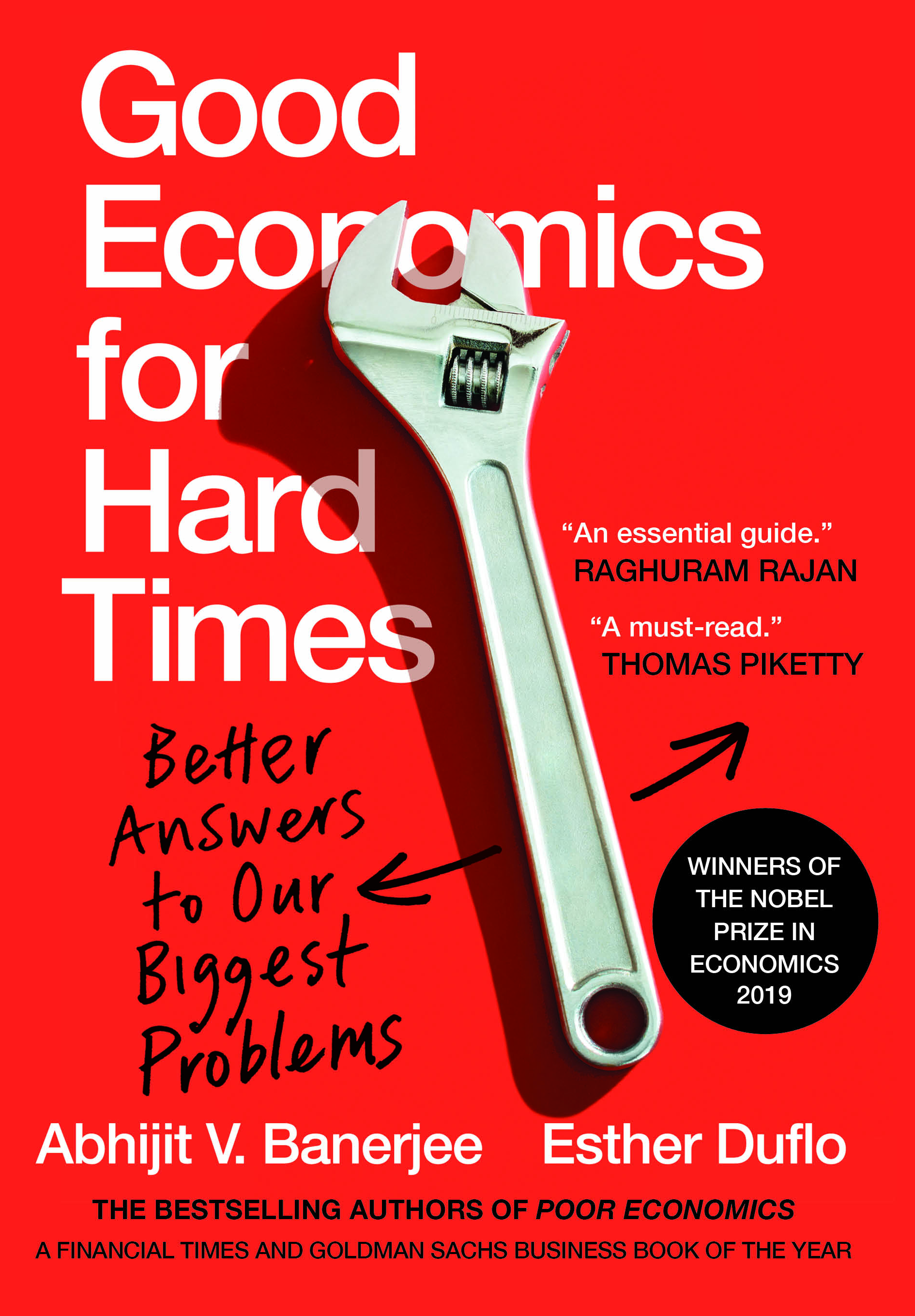
Juggernaut Books
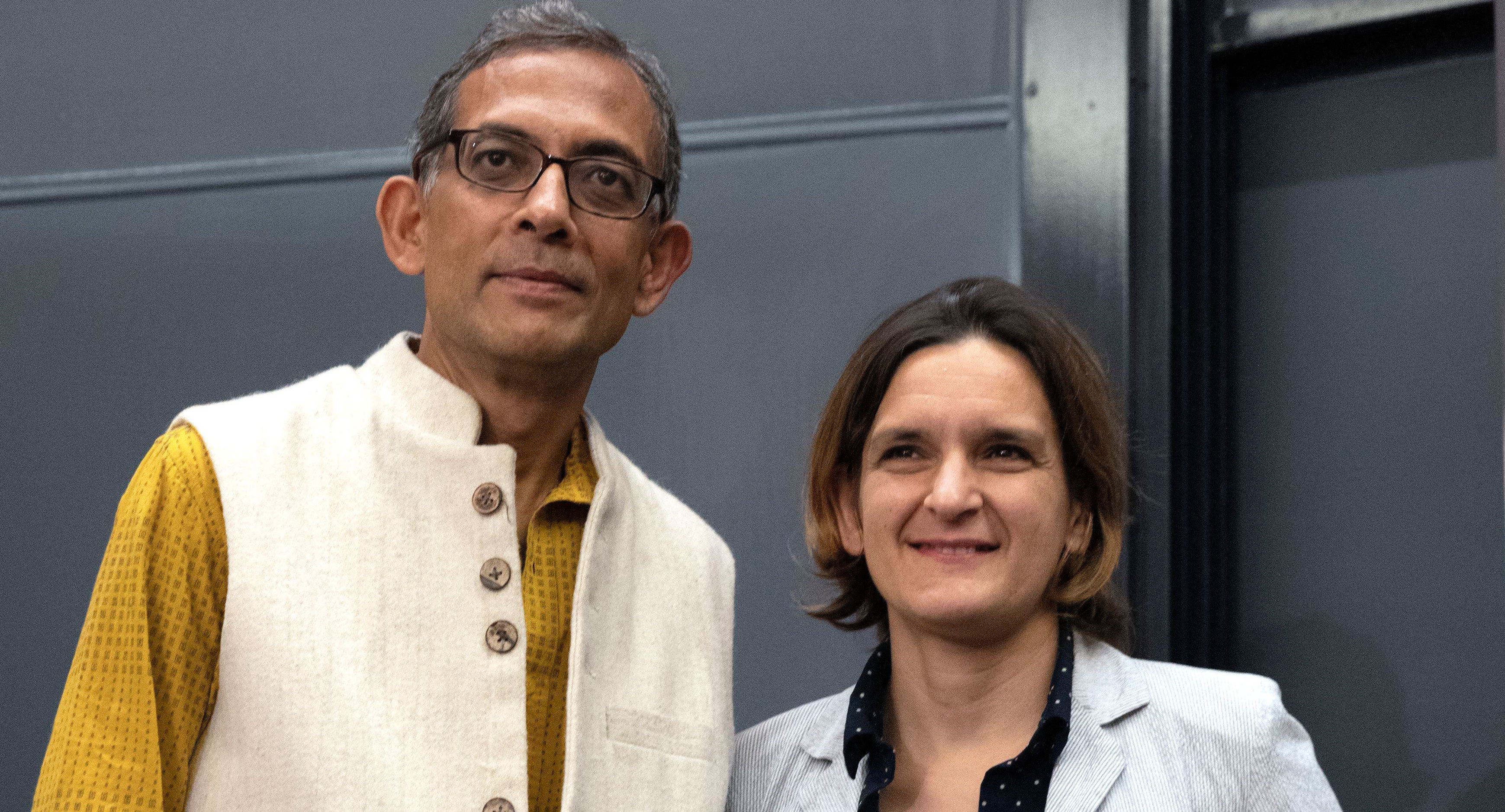
Abhijit Banerjee and Esther Duflo (AP)

